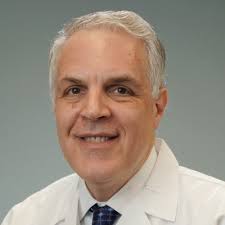- Center on Health Equity & Access
- Clinical
- Health Care Cost
- Health Care Delivery
- Insurance
- Policy
- Technology
- Value-Based Care
We Need to Act Earlier to Address the Silent Crisis of Kidney Disease, Inadequate Federal Support
The author discusses a program to prevent kidney decline and progression to dialysis by offering education, support services, and help navigating the health care system to those most at risk.
Scientia potentia est. sounds complicated, but when translated, “knowledge is power” rings true for many aspects of life, particularly when it comes to managing one's health.
Chronic kidney disease (CKD) is the gradual loss of kidney function with few, if any, symptoms. Many of the 1 in 3 adults who are at risk for CKD have no idea that they have contracted the disease—creating a silent epidemic within our health care system. If left untreated, CKD can progress into total kidney failure, clinically known as end-stage kidney disease (ESKD), which necessitates life-sustaining and frequent dialysis treatments or a kidney transplant.
Given that Black and Hispanic patients are more likely to experience this devastating progression of kidney disease, this is not only a silent epidemic but a serious health equity issue. Part of the reason for these disparities are barriers to care, including a lack of educational resources and challenging social determinants that impede patients in underserved communities from accessing the full range of care and services they need to avoid ESKD. Lifestyle interventions can help slow or manage CKD progression and ease the transition to dialysis, but often these changes depend on external support, which the current Medicare program demands while failing to provide the necessary resources.
Jeffrey Silberzweig, MD | Image: LinkedIn

To help address these issues, our team developed the Prevention and Education for Advanced Kidney Disease (PEAK) program, designed to reduce inequalities in kidney care. This interdisciplinary program provides educational programs, materials, and support for those living with kidney disease. The program not only helps patients identify and treat kidney disease at an earlier stage, but it also helps them navigate our complex health care system.
Through the PEAK program, care teams work closely with patients to educate them on treatment options and establish personalized treatment plans. Patients have access to social workers, dieticians, and other health care professionals to improve their health outcomes.
Within its first year, 50% of patients graduating from the PEAK program began dialysis in outpatient settings with permanent dialysis vascular access or at home. Proactive intervention avoids costly hospital visits and helps prevent disease progression to kidney failure. In addition, the program has expanded patient access to home dialysis, a treatment option associated with improved health outcomes and patient quality of life.
Despite these successes, programs like PEAK face significant challenges due to inadequate federal support. The Medicare Kidney Disease Education (KDE) benefit does not cover the cost, and over the last few years, the Medicare ESRD Prospective Payment System (PPS)—which determines payment for providers has routinely failed to provide adequate funding resources for the kidney care community. This year, the Centers for Medicare & Medicaid Services (CMS) has proposed a meager 1.8% payment increase, falling far short of the substantial increase in the cost of successfully running a medical facility.
Year after year of insufficient payments is undermining the kidney community’s ability to hire staff, support the use of innovative treatments, and, in far too many cases, keep their doors open. The sad reality is that many dialysis facilities are struggling to keep the lights on. Education and outreach initiatives like PEAK and other preventative programs are often the first to get cut when medical facilities attempt to make ends meet.
To safeguard and expand these patient-friendly initiatives, Congress must take action. One promising solution is the bipartisan Chronic Kidney Disease Improvement in Research and Treatment Act of 2023 (H.R. 5027/S. 4469). Much like the PEAK program’s goals, this legislation aims to improve the lives of those with kidney disease and expand access to educational resources. Specifically, the legislation would increase access to the Kidney Disease Education (KDE) Benefit and expand the Medicare annual wellness benefit to include kidney disease screening. Together, these reforms would help detect kidney disease at earlier, more treatable stages. That’s good news for patients—and taxpayers!
By bridging gaps in kidney care funding and policy, we can ensure that millions of Americans with kidney disease receive the comprehensive care they deserve, which will improve health outcomes and reduce the overall burden on our healthcare system. Together, we can empower individuals with kidney disease to live fuller, healthier lives while advancing the quality and accessibility of kidney care.
About the Author
Jeffrey Silberzweig, MD, is chief medical officer and vice president for Hospital Services for The Rogosin Institute, a preeminent kidney care center based in New York City.
